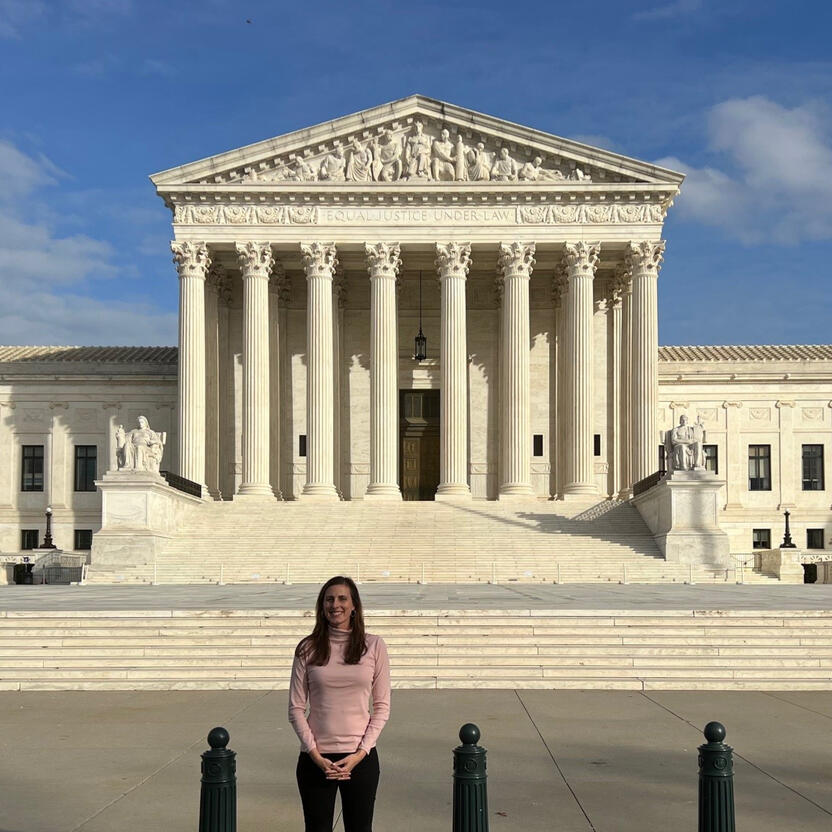
Jacqueline allen law
Attorney
About

Jacqueline Allen is licensed to practice law in Texas and is a Certified Regulatory Compliance Manager (CRCM), Certified Anti-Money Laundering Specialist (CAMS), and Certified Information Privacy Professional (CIPP-US). A native Texan, Jacqueline earned her B.S. from the University of Texas at Austin (hook ‘em!) and her J.D. from Southern Methodist University in Dallas. She resides in Dallas with her husband and two children.Jacqueline represents fintechs, state and national banks, credit unions, retailers, ecommerce companies, point-of-sale companies, payment processors, ACH networks, mobile app and wallet developers, and investors in such companies.

Jacqueline is passionate about using her 15 years of experience in fintech, payments, consumer credit, technology, privacy, and regulatory law to design and build products that help both businesses and consumers. With more than a decade of in-house experience (including at a publicly-traded company), Jacqueline thoroughly understands the economic needs of businesses, and she excels at balancing those needs with legal and regulatory expectations. She is known for providing legal advice that is direct and clear while also pragmatic and concise. Beyond providing legal advice, Jacqueline is proficient at translating legal advice into clear direction for business departments like IT/Engineering, Operations, Marketing, and Compliance to implement inside the business. She is well-versed at writing technical requirements for IT/Engineering.For over seven years, Jacqueline served as the Chief Legal Officer of a fast-paced, high-growth financial technology (fintech) company. As the first lawyer for the company, she built the legal and compliance foundation that would not only propel the company to double-digit growth but also position the owner to sell the company four years later for $1.1 billion. After the sale, the buyer promoted Jacqueline to Chief Legal Officer of both companies, where she advised both lines of business for three more years. During Jacqueline’s over seven years with the fintech, it had no enforcement actions.
Jacqueline started her career in the legal departments of the Federal Deposit Insurance Corporation (FDIC) and Federal Trade Commission (FTC), learning first-hand how regulators investigate companies and their leaders and how those regulators build enforcement cases. Her experience helping the FDIC formulate and prosecute enforcement actions against banks and their management continues to inform the legal advice she now provides to companies for preventing enforcement actions. Jacqueline has also personally managed and responded to over 1,200 state and federal government examinations, including CFPB and FDIC exams (e.g., consumer lending, lease-to-own/rent-to-own, retail installment contract/sales agreement, money transmitter, and check cashing).Having managed one of the first CFPB exams the CFPB initiated in February 2012 and countless CFPB matters since, Jacqueline has over a decade of experience interacting with the CFPB and advising on CFPB exams, investigations, enforcement actions, consumer complaints, and expectations.Jacqueline previously practiced law for a national law firm in the Consumer Financial Services; Bank Regulatory; and Privacy, Data Security, & E-Commerce practice groups.

She has spoken to various audiences including the Texas Association of Banking Counsel, Texas Advanced In-House Counsel Symposium, Practical Law Institute, and Dallas Area Compliance Association. Her speaking engagements have focused on consumer finance and banking laws, regulatory compliance topics, and privacy and data security expectations.As a published author, Jacqueline has written textbook chapters, LexisNexis treatises, Law360 articles, and other industry articles.Outside of law, Jacqueline enjoys passionately cheering on the Longhorns, traveling to national parks, gardening, and volunteering at her church in the altar guild.

B2C Contract and Disclosure Drafting
Promissory notes
TILA disclosures
State-specific disclosures
Pre-dispute arbitration agreements
Consents to calls, texts, and emails
Marketing disclosures
Application fields and disclosuresB2B Contract Review, Drafting, and Negotiation
SaaS, Iaas, PaaS, and BaaS agreements
Marketing agreements
Issuer and acquirer agreements
Master service agreements and statements of workLegal Due Diligence
Information gathering
Pre-acquisition review
Negotiation support
Post-acquisition planningFinTech Law
Proposed business models
Product structures
State licensing
Consumer documentation
DisclaimersMobile and Electronic Commerce Law
E-SIGN
UETA
Mobile app design considerations
Website design considerations
Electronic disclaimers
Electronic delivery of disclosuresPrivacy and Data Security Law
Privacy policies
State privacy laws
Gramm Leach Bliley Act/Reg P
Children's Online Privacy Protection Act (COPPA)
Data permissioning and sharing
Data breach response plans
Data breach notifications
Data classifications
Records retention/destructionArtificial Intelligence Law
Data models in credit decisions and fraud prevention
Intellectual property considerations
State lawsRegulatory Compliance
Equal Credit Opportunity Act/Reg B
Electronic Funds Transfer Act/Reg E
Gramm Leach Bliley Act/Reg P
Fair Credit Reporting Act/ Reg V
Truth in Lending Act/Reg Z
UDA(A)P
Military Lending Act
Service members Civil Relief Act
TCPA
CAN-SPAM
FDCPA and state debt collection laws
Compliance management systems (CMSs)
Policies & procedures
Vendor managementAnti-Money Laundering
Bank Secrecy Act (BSA)
Customer Identification Programs (CIPs)
Know Your Customer (KYC)
Office of Foreign Assets Control (OFAC)
Policies & procedures
Monitoring
ReportingState Licensing, Registrations, & Reporting
State law analyses/applicability
Proposed business models
Initial applications
Changes in controlMarketplace Lending & Bank Partnerships Law
Legal structure and documentation
Policies and procedures
State law nuances
Regulatory expectationsBanking Law
Treasury Management Services
Remote Deposit Capture
Deposit AccountsStored Value Cards Law
Gift cards
Prepaid debit cards
Virtual debit cards
Escheatment/unclaimed property reporting laws
Expiration dates
DisclaimersPayment Systems and Network Operating Rules
NACHA
Visa
MasterCardGovernment Exams, Investigations, and Enforcement
CFPB
FDIC
State regulators
State attorneys generalExpert Witness ServicesSpeaking Engagements
Contact